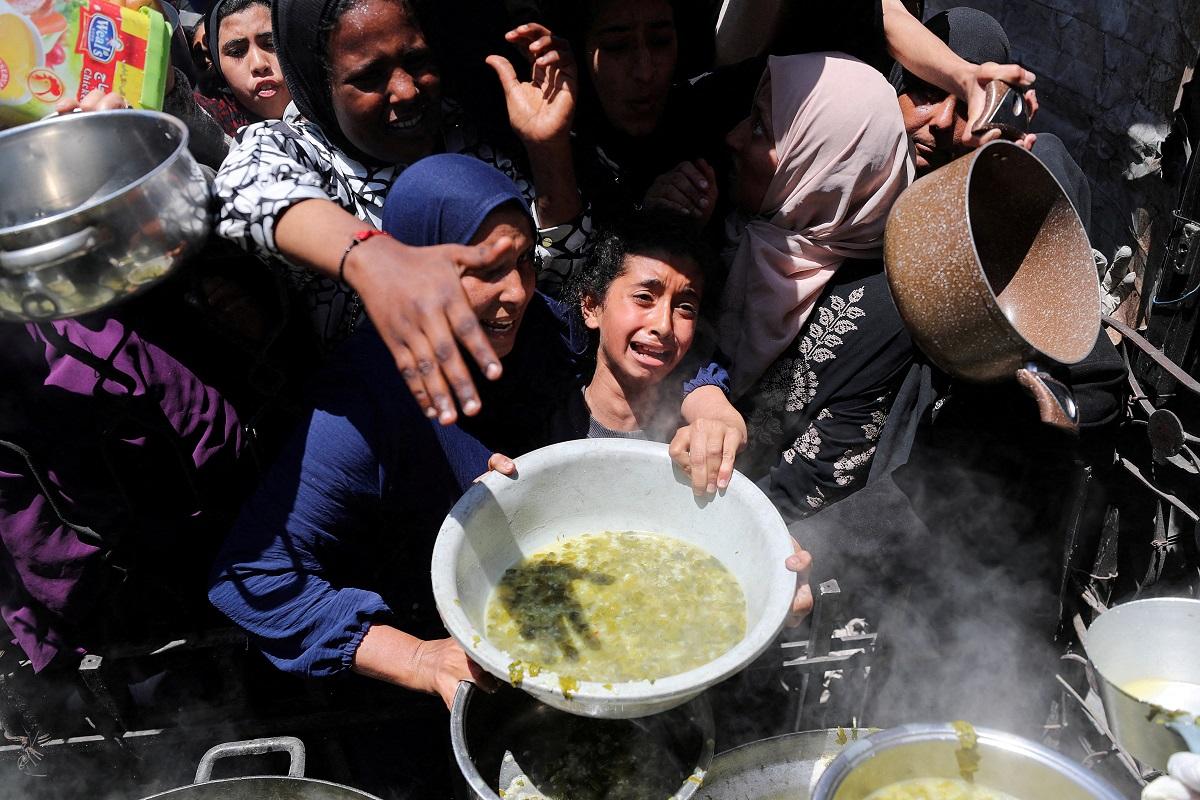Humanitarian Aid Stalled in Gaza Amid Blockade and Rising Malnutrition Rates

UNITED NATIONS/GENEVA — The dire humanitarian situation in the Gaza Strip remains critical, with no aid having been effectively distributed, according to a statement from the United Nations on Tuesday. This announcement follows Israel's recent decision to permit limited humanitarian deliveries after an extensive blockade lasting 11 weeks. Experts are raising alarms about the looming threat of famine in this densely populated enclave.
U.N. spokesperson Stephane Dujarric reported that on Monday, four trucks filled with baby food were delivered to the Palestinian side of the border. On Tuesday, a modest number of trucks carrying essential items such as flour, medicine, nutrition supplies, and other basic necessities entered Gaza. However, the situation remains precarious as substantial challenges persist.
Dujarric explained the operational hurdles faced by U.N. teams, stating, “Israeli authorities are requiring us to offload supplies on the Palestinian side of the Kerem Shalom crossing and reload them separately once they secure our team's access from inside the Gaza Strip.” He highlighted the logistical delays faced by aid workers, noting that one of their teams waited for several hours to receive the necessary Israeli approval to access the Kerem Shalom area and collect the nutrition supplies. Unfortunately, they were unable to transport those crucial supplies into their warehouse.
Earlier that same day, a spokesperson from the U.N. humanitarian office in Geneva indicated that Israel had authorized approximately 100 aid trucks to enter Gaza, but the actual impact of this approval remains to be seen amidst the ongoing turmoil.
U.N. aid chief Tom Fletcher voiced his concern on Monday, describing the initial amount of aid permitted by Israel as merely “a drop in the ocean.” This sentiment reflects the urgent need for more substantial aid to address the escalating humanitarian crisis.
In the backdrop of these developments, Israel has announced plans to escalate military operations against Hamas, aiming to assert control over the entirety of Gaza. This region has been severely impacted by an Israeli air and ground offensive, which was instigated following a cross-border attack by Hamas on Israeli communities in October 2023.
Israel has justified its blockade by asserting that it is necessary to prevent Palestinian militants from diverting and seizing humanitarian aid supplies. In contrast, Hamas has denied these allegations, leading to further tensions and challenges in aid distribution.
Adding to the crisis, a U.S.-backed organization is set to initiate operations within the Gaza Strip by the end of May. This group aims to oversee a new model for aid distribution in the Palestinian enclave. However, the United Nations has expressed serious concerns over this plan, arguing that it lacks impartiality and neutrality, and therefore, they will not be participating.
The ongoing blockade has exacerbated malnutrition rates in Gaza, with health officials warning that the situation could deteriorate significantly if food shortages persist. Akihiro Seita, the Director of Health for the U.N. Palestinian refugee agency UNRWA, shared alarming data on Tuesday, stating, “I have data until the end of April and it shows malnutrition on the rise. And then the worry is that if the current food shortage continues, it will exponentially increase, and then get beyond our control.”
As the situation unfolds, the implications of the blockade and military operations on the Palestinian population remain critical, and urgent action is needed to alleviate the suffering in Gaza.




























